When it comes to vehicle maintenance, most drivers focus on major components like the engine, transmission, or brakes — but what about the PCV Valve?
There are smaller, often overlooked parts that play a critical role in keeping your vehicle running smoothly. One such part is the Positive Crankcase Ventilation valve. While it may be a small and inexpensive component, the PCV valve is vital to your engine’s performance, fuel economy, and emission control.
What Is the PCV Valve?
The PCV valve is part of your vehicle’s emissions control system. It was introduced in the 1960s as a way to reduce air pollution and improve engine efficiency. The valve is typically found on the valve cover or intake manifold and is connected by a hose to the engine’s crankcase.
Its primary function is to regulate the release of gases—known as “blow-by” gases—that escape from the combustion chamber and make their way into the crankcase. These gases include unburned fuel, moisture, and combustion byproducts like carbon monoxide and hydrocarbons. Without a PCV system, these gases would remain in the crankcase, leading to sludge buildup, increased engine wear, and higher emissions.
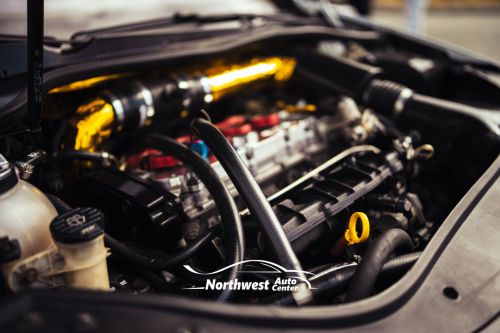
How the PCV Valve Works
The PCV valve acts as a one-way gate that allows gases from the crankcase to be redirected back into the intake manifold. From there, the gases are sent into the combustion chamber where they are burned off. This process reduces emissions and prevents pressure buildup inside the engine.
The valve regulates airflow based on engine load. Under low engine load or idle conditions, the valve restricts airflow to prevent rough idling. Under higher loads, it opens more to allow for increased ventilation. This smart modulation ensures that your engine maintains proper pressure and cleanliness without compromising performance.
Why the PCV Valve Is So Important
Though small, the PCV valve has a big impact on your engine’s health. Here are some of the key benefits it provides:
Reduces Harmful Emissions
By recycling crankcase gases back into the engine for combustion, the PCV valve helps lower the level of pollutants your vehicle releases into the atmosphere.
Prevents Engine Sludge
When blow-by gases are left in the crankcase, they mix with engine oil and form sludge. This sludge can clog oil passages, reduce lubrication, and shorten engine life. A functioning PCV valve prevents this by venting gases out before they settle.
Improves Fuel Economy
Cleaner engine internals and more efficient combustion processes help improve your vehicle’s fuel efficiency. A clogged or malfunctioning valve can have the opposite effect.
Enhances Engine Performance
Proper crankcase ventilation keeps internal pressures balanced and reduces oil contamination. This leads to smoother operation and longer-lasting engine components.
Signs of a Failing PCV Valve
Like any part, the PCV valve can wear out or become clogged over time. When that happens, your vehicle may show signs of trouble. Here are some common symptoms of a bad or failing PCV valve:
- Rough idling or stalling
- Oil leaks or increased oil consumption
- Check engine light
- Lower fuel economy
- Sludge buildup in the engine
- Whistling or hissing noises from the engine
In severe cases, a stuck PCV valve can lead to pressure buildup that damages seals and gaskets, causing oil leaks and costly repairs.
How Often Should the PCV Valve Be Replaced?
The replacement interval for the PCV valve varies depending on the make and model of your vehicle, but many manufacturers recommend inspecting or replacing it every 30,000 to 50,000 miles. Since the valve is inexpensive—usually under $20—it’s a cost-effective part to replace during regular maintenance.
If you’re unsure whether your PCV valve needs replacement, your local mechanic can perform a quick inspection. A simple rattle test (shaking the valve to hear a clicking sound) can sometimes indicate whether it’s functioning properly, but a more thorough vacuum test may be needed for accurate diagnostics.
PCV Valve Maintenance Tips
Check the PCV hose for cracks or clogs – A faulty hose can impact the entire ventilation system, even if the valve itself is working fine.
Look for signs of oil around the valve – This may indicate a leak or clogged valve.
Incorporate PCV inspection into routine maintenance – Ask your mechanic to check the PCV system during oil changes or spark plug replacement.
Use OEM parts – Always opt for high-quality or original equipment manufacturer (OEM) PCV valves to ensure compatibility and performance.
PCV Valve – Small but Mighty
The PCV valve may be one of the smallest components in your vehicle, but its impact on engine health, fuel efficiency, and emissions is significant. Ignoring this simple part can lead to more serious—and more expensive—engine issues over time.
At Northwest Auto Center of Houston, we help drivers maintain their vehicles for long-term performance and reliability. Whether you need a PCV valve replacement or a full engine diagnostic, our experienced team is here to keep your car running smoothly.
Schedule your appointment today at Northwest Auto Center of Houston! Call us at (281) 894-8880.

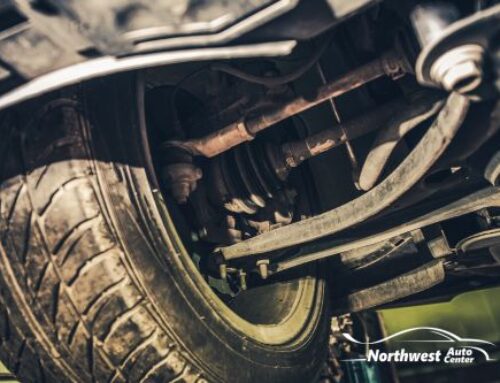
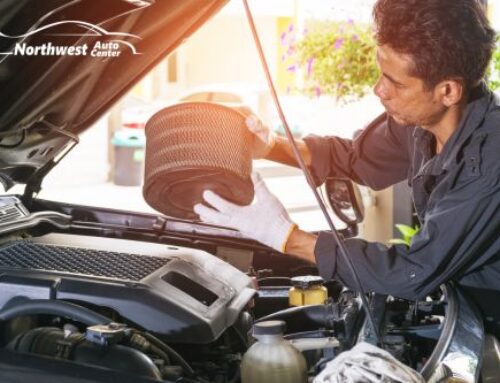
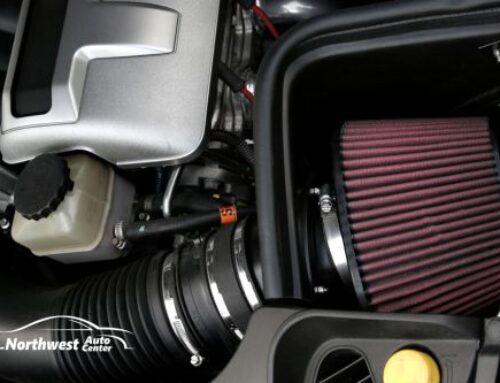
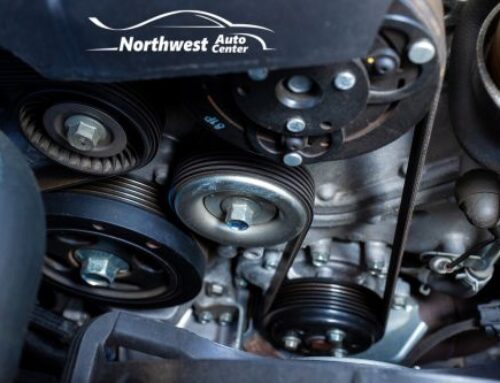

Leave A Comment
You must be logged in to post a comment.